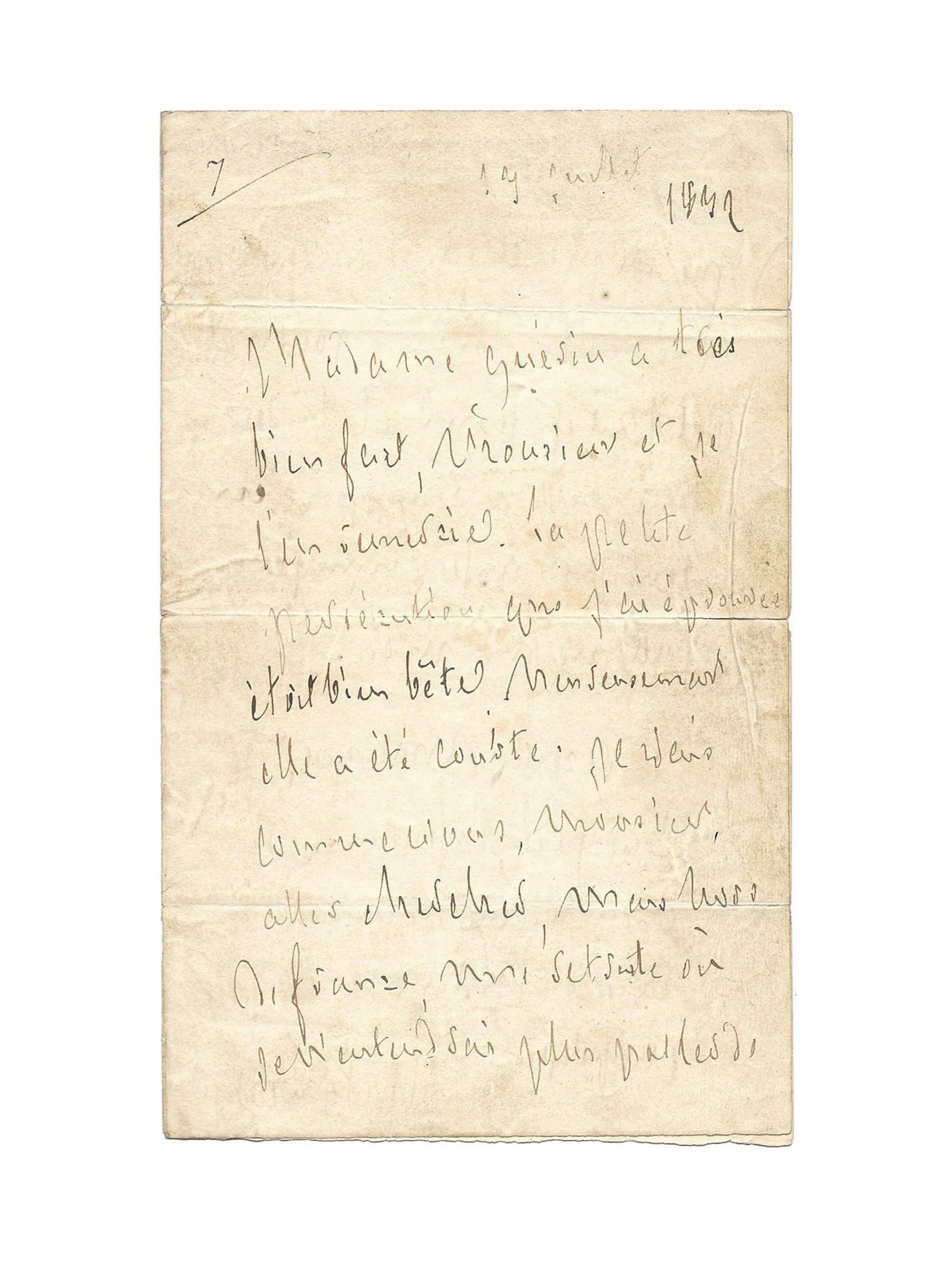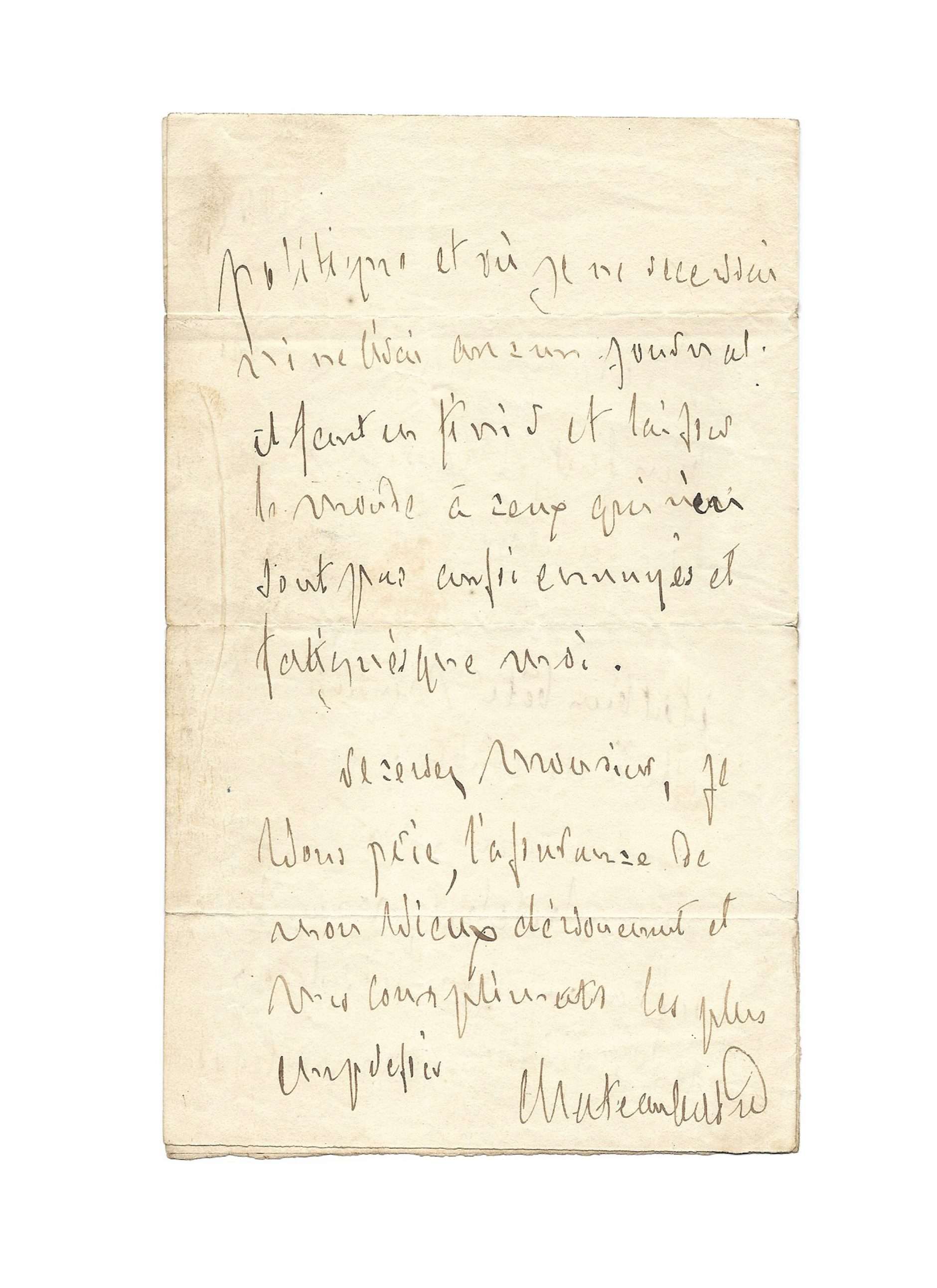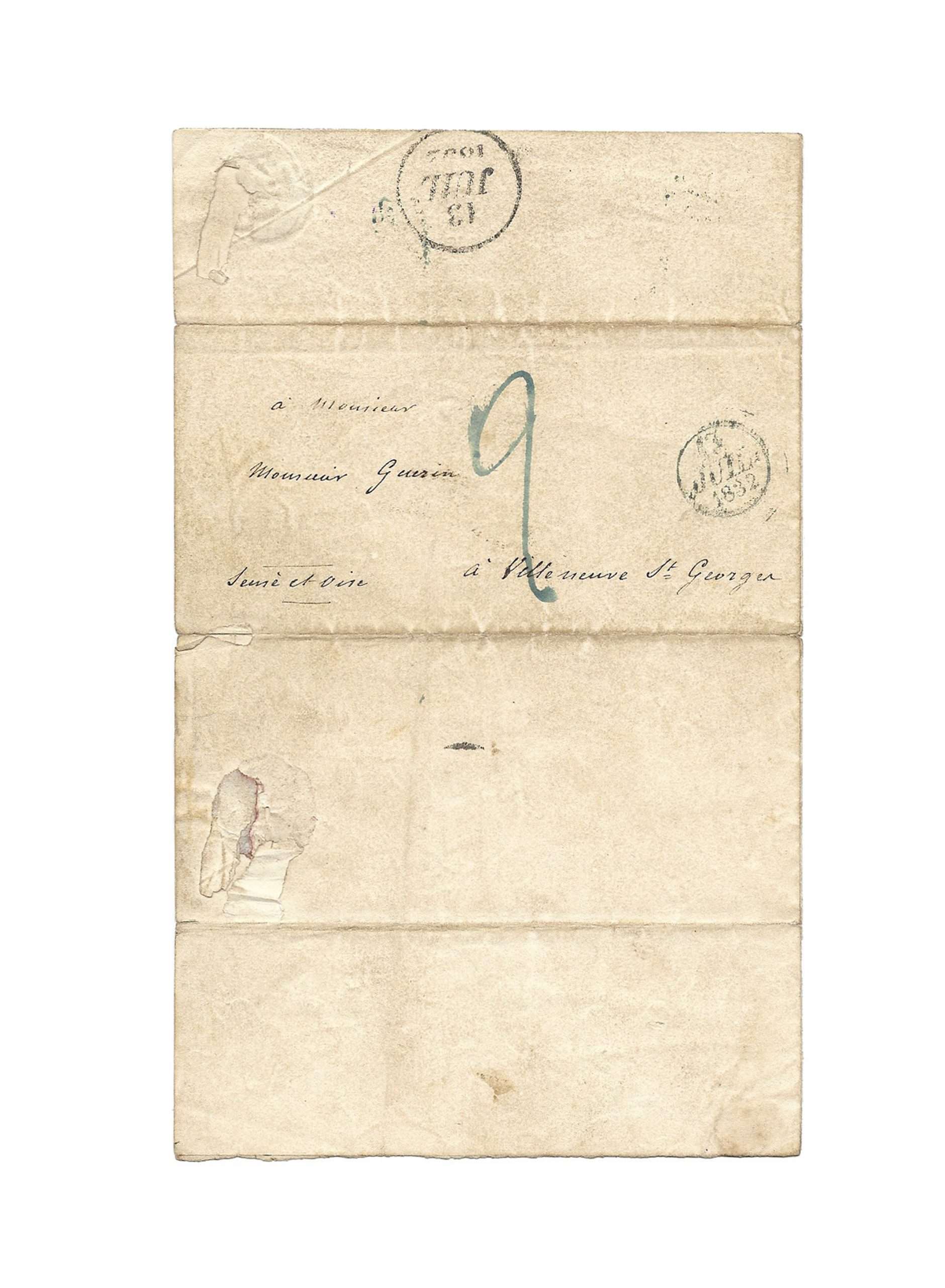CHATEAUBRIAND (de), François-René (1768-1848)
Autograph letter signed “Chateaubriand” to Pierre-Narcisse Guérin
N.p, 13th July 1832, 2 pages in-8 on double sheet
“We must put an end to it and leave the world to those who are not as bored and tired as I am”
Fact sheet
CHATEAUBRIAND (de), François-René (1768-1848)
Autograph letter signed “Chateaubriand” to Pierre-Narcisse Guérin
N.p, 13th July 1832, 2 pages in-8 on double sheet, autograph address by his secretary Hyacinthe Pilorge
Usual fold marks, some tears, various traces of wear and brown spots
A disillusioned letter from Chateaubriand, then on the cusp of a long retreat from politics
“Madame Guérin a très bien fait, Monsieur, et je l’en remercie. La petite persécution que j’ai éprouvée était bien bête. Heureusement elle a été courte. Je vais comme vous, Monsieur, aller chercher, mais hors de France, une retraite où je n’entendrai plus parler de politique et où je ne recevrai ni ne lirai aucun journal. Il faut en finir et laisser le monde à ceux qui n’en sont pas aussi ennuyés et fatigués que moi.
Recevez, Monsieur, je vous prie, l’assurance de mon vieux dévouement et mes compliments les plus empressés.
Chateaubriand”
Increasingly opposed to conservative parties, disillusioned with the future of the monarchy, Chateaubriand retired from business after the Revolution of 1830, even leaving the House of Peers. He only signaled his political existence by scathing criticism of the new government and by paying visits to the fallen family.
Pierre-Narcisse Guérin (1774-1833) was a French painter of the neoclassical movement, grand prix of Rome in 1797 for The Death of Caton d’Utique. He is best known for The Return of Marcus Sextus (1800) and Napoleon forgiving the revolts of Cairo (circa 1805). In 1810, he ran a workshop frequented by Géricault, Ary and Henry Scheffer, Delacroix… Appointed a member of the Academy of Fine Arts in 1815, he was called to the management of the Medici villa, which he headed until 1829. Back to Paris for some time, he returned to Rome with his successor Horace Vernet. Chateaubriand’s support earned him the title of Baron in 1829. He was elevated to the rank of Officer of the Legion of Honour in 1833, the year of his passing.
Correspondance générale, t. IX p. 178 (229)





